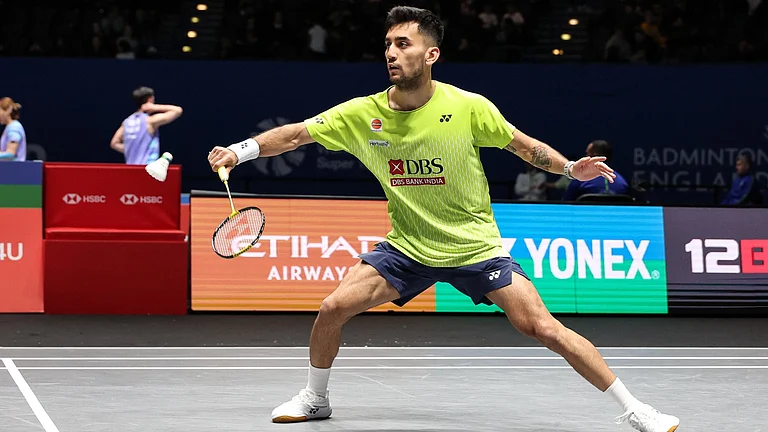Jim Beveridge has been blending the Johnnie Walker whiskies for almost 40 years now, but it’s rare to find him outside of his blending lab in Menstrie, Scotland. He is not just the Master Blender, but also the only sixth person in the 200-year history of Johnnie Walker to fulfil this role.
Beveridge leads a team of expert whisky makers in the pursuit of exceptional flavour, as he manages and monitors the unparalleled Johnnie Walker reserves of 10 million casks of maturing Scotch whiskies.
Recently, while promoting ‘The Man Who Walked Around The World’, award-winning director Anthony Wonke’s feature documentary on Johnnie Walker, he took time out to talk to Outlook about the future of the Scotch whisky business, the art of blending, catering to Indian flavours, and much more.
Excerpts from the interview:
Narrate your reaction when Anthony Wonke and the team approached you with an idea of making a documentary on Johnnie Walker.
When I first heard that Anthony and his team had decided to make a documentary about Johnnie Walker, I was really excited. We’re proud of our 200-year journey, and how the whisky has been enjoyed by so many people all around the world. The knowledge that that story was going to be told by a filmmaker as accomplished as Anthony was thrilling.
And while I’m not necessarily used to being in front of the camera, I’m always happy to sit amongst friends and chat about whisky, so being involved was a pleasure!
How and when did you get interested in whiskies?
I feel privileged to have been a part of the Johnnie Walker whisky making team for 40 years now. Before then, I always had an interest in whisky, but within my first few days in the job I was working with this community of experts, all driven by the pursuit of extraordinary flavour – I knew immediately I was exactly where I was supposed to be. I’ve loved the work, and whisky, ever since.
What’s your approach to blending?
I work in a small team of twelve very passionate and skilled people, who all bring a tremendous amount of craft and knowledge to the table. That allows our process to be really collaborative – we nose hundreds of samples a week, sharing ideas and building knowledge together.
When it comes to the actual blending process, every whisky is different, and therefore it’s important not to have too much written in stone. What stays consistent from project to project is that we focus on extraordinary flavour above all else, and work as a team to push the boundaries of what’s possible in whisky.
Does the sourcing for the core blends vary from year to year?
For us, it’s all about the end product. Small variances in the whiskies that we use are a natural part of producing Scotch at the scale we do for our core range, but we have processes to ensure that every bottle of Johnnie Walker is consistent, with the same unmistakable flavours and textures you’d expect from our whiskies.
What are some of the things that you keep in mind while creating blends for India? Do you believe your blends are more suited to the Indian and Asian palate?
When we’re thinking about whisky, we’re really looking for a flavour that can be enjoyed universally. Johnnie Walker has always been about taking flavour from the four corners of Scotland and sharing it with all four corners of the world.
But whisky is versatile and is made to be enjoyed in different ways, depending on anything from occasion to climate to personal preference. That’s why it’s so exciting for us as whisky makers to see bartenders and drinkers all around the world experiment with how they serve and drink Johnnie Walker and make it their own. Johnnie Walker impacts the local culture, and in turn, the local culture impacts Johnnie Walker.
From a technical standpoint, what innovations are you working on?
At any one time, our team of whisky makers will be working on many different experiments, all in the pursuit of exceptional flavour. Every member of the team is a natural experimenter, and we encourage that. They question everything and challenge themselves to find new flavours by using their expertise and intuition to explore what’s possible.
John Walker & Sons Celebratory Blend, Johnnie Walker Blue Label Legendary Eight and John Walker & Sons Bicentenary Blend are three very different whiskies, each one bringing a fresh perspective to our 200th story - the perfect way to celebrate this huge moment for Johnnie Walker.
We’re in the process now of finalising some really special things for next year. At the moment I can’t give much away, but it’s a very exciting time for Johnnie Walker just now – watch this space!
Are there any whiskies (single malt or grain) in the portfolio that you feel may be underappreciated by the public at large?
It is not for me to say that something is underappreciated, it is up to people to decide what they like and don’t like.
Bartenders always say to me that I should stop telling people about Johnnie Walker Green Label because it is their secret, which I always enjoy hearing! But I won’t stop telling people how great I think it is!
Yet, there are some fantastic whiskies that we have in our reserves of nearly 10 million maturing casks that we feel are not as well-known as they perhaps should or could be.
That was one of the reasons why we started the Johnnie Walker Blue Label Ghost and Rare series. The series sought to shine a light on amazing whiskies, with incredible flavours, from distilleries that are no longer in existence.
Last year we released the third in that series, Johnnie Walker Blue Label Ghost and Rare Glenury Royal. The Glenury Royal distillery may have closed over 30 years ago but it produced some incredible whisky and it was a delight for me to be able to explore these very rare expressions, balancing them with other ‘ghost’ whiskies and other rare whiskies, to showcase how wonderful these relatively unknown whiskies are.
For layman - what is the difference between single malt, Scotch and whisky?
Of course – I appreciate that for newcomers, it can sometimes feel like there’s a lot to get your head around! Put simply, Scotch is a whisky that is made and bottled in Scotland.
Single malt whisky is a specific type of whisky, which is distilled at a single distillery in a copper pot still using only malted barley, yeast, and water, with the whisky then aged in oak casks.
Johnnie Walker is a blended whisky. Our team of whisky makers mix multiple whiskies from different distilleries, to create a whisky greater than the sum of its parts.
Is there a correct way to drink whisky?
Yes, of course – but the answer differs from person to person. The correct way to drink whisky is whatever way you enjoy most, regardless of whether that’s neat, on the rocks, with a dash of water, or as part of a Highball or a cocktail. It’s all down to personal preference and we’d encourage drinkers to experiment and see what works for them.
How is each whisky from the brand different from another?
I could speak for days on that topic and still not give a fully comprehensive answer! We oversee the development of more than 10 million casks from distilleries in every region across Scotland, which gives us an incredible variety of flavours and textures from whisky to whisky. After forty years, I’m fortunate enough to learn new things about whiskies in our inventory every day, and that continuous exploration helps to ensure that every new Johnnie Walker whisky is unique.

















.jpg?w=200&auto=format%2Ccompress&fit=max)




